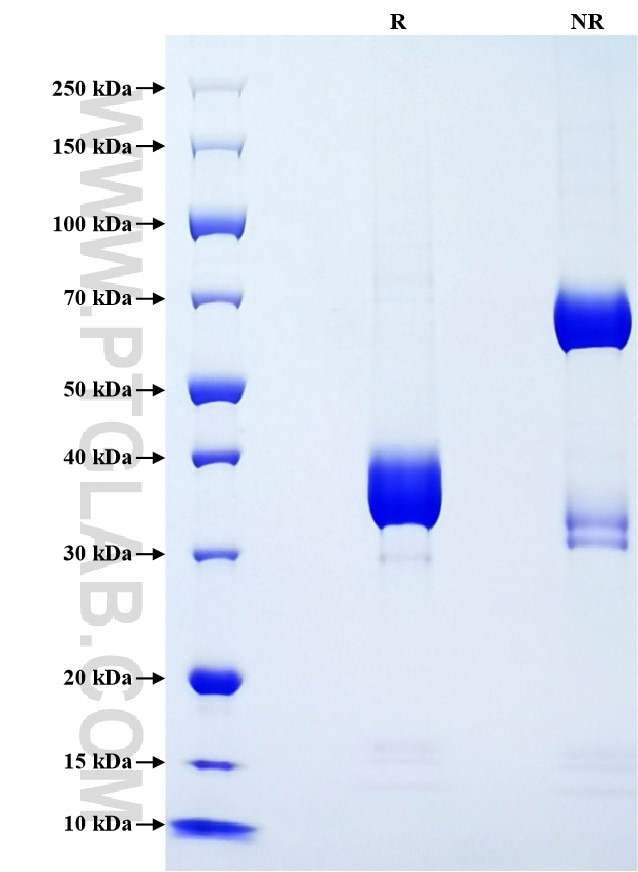Recombinant Human CCL22 protein (rFc Tag)
Species
Human
Purity
>90 %, SDS-PAGE
Tag
rFc Tag
Activity
EC50: /
Cat no : Eg1974
Validation Data Gallery
Product Information
| Purity | >90 %, SDS-PAGE |
| Endotoxin | <0.1 EU/μg protein, LAL method |
| Activity |
Not tested |
| Expression | HEK293-derived Human CCL22 protein Gly25-Gln93 (Accession# O00626) with a rabbit IgG Fc tag at the N-terminus. |
| GeneID | 6367 |
| Accession | O00626 |
| PredictedSize | 35.3 kDa |
| SDS-PAGE | 32-40 kDa, reducing (R) conditions |
| Formulation | Lyophilized from 0.22 μm filtered solution in PBS, pH 7.4. Normally 5% trehalose and 5% mannitol are added as protectants before lyophilization. |
| Reconstitution | Briefly centrifuge the tube before opening. Reconstitute at 0.1-0.5 mg/mL in sterile water. |
| Storage Conditions |
It is recommended that the protein be aliquoted for optimal storage. Avoid repeated freeze-thaw cycles.
|
| Shipping | The product is shipped at ambient temperature. Upon receipt, store it immediately at the recommended temperature. |
Background
The C-C motif chemokine ligand 22 (CCL22), also known as MDC, belongs to the group of chemokines, that are both constitutively expressed under homeostatic conditions and inducible upon inflammation. CCL22 is a secreted protein that exerts chemotactic activity for monocytes, dendritic cells, natural killer cells, and for chronically activated T lymphocytes. CCL22 is induced by LPS, IL-4, and IL-13 and in T cells by TCR stimulation. Accumulating studies indicate that CCL22 recruits regulatory T (T-reg) cells into tumor tissues and is expressed in many human tumors.
References:
1. A Mantovani. et al. (2000) J Leukoc Biol. 68(3):400-4. 2. M Vulcan. et al. (2001) Eur J Immunol. 31(3):812-22. 3. Stefanie Scheu. et al. (2017) Int J Mol Sci. 18(11):2306 4. Röhrle N. et al. (2020) Adv Exp Med Biol. 1231:79-96.

